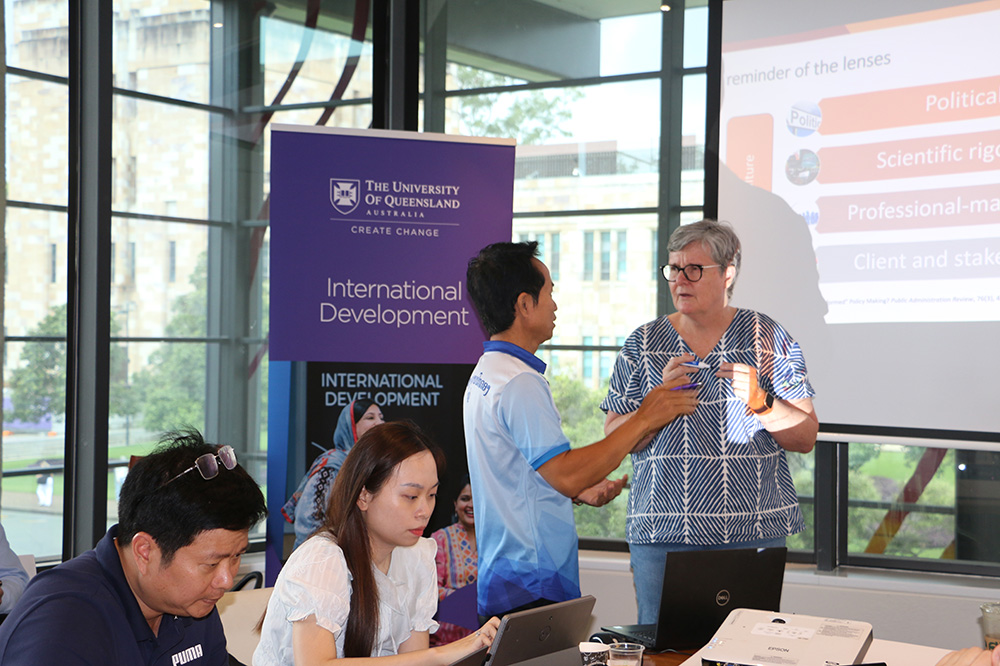In a compelling example of international collaboration and strategic learning, Lao government officials have developed a comprehensive road safety reform plan for Vientiane Capital, following their participation in the Australia Awards Short Course in Strategic Analysis and Analytical Writing. Delivered by The University of Queensland (UQ) through its International Development unit, the course is part of the Australian Government’s Mekong-Australia Partnership initiative.

Led by Sengdao Inthavong and Toubee Chanthaphanith, the project aimed to address the alarming rate of road traffic accidents in urban Vientiane — an issue Sengdao described as one of Laos’s most urgent social and economic challenges. Her decision to focus on road safety reform was driven not only by policy priorities but also by personal experience.
Having lived in Vientiane since 2015, Sengdao has witnessed firsthand the daily traffic congestion and frequent accidents that plague the city. “I’ve seen crashes happen and know people who’ve been seriously affected,” she said. “These experiences made the issue feel very real and sad to me and motivated me to join the road safety reform project because I wanted to be part of something that could reduce accidents and save lives.”
"I chose this project because it offered an opportunity to make a tangible impact by improving public safety, reducing preventable deaths, and supporting national development goals. It also allowed me to apply policy skills to a practical, analytical, high-impact reform that can serve as a model for wider change."
Using the Problem-Driven Iterative Adaptation (PDIA) framework taught during the course, Sengdao and Toubee identified key issues such as poor helmet usage, speeding, inadequate pedestrian infrastructure, and weak enforcement of traffic laws. Their analysis was informed by accident statistics, police reports, and stakeholder interviews.
The resulting policy recommendations include:
- Strengthening traffic law enforcement and penalties
- Launching public awareness campaigns and integrating road safety into school curricula
- Upgrading traffic infrastructure, including smart signals and pedestrian pathways
- Enhancing data collection systems for accident analysis
- Promoting multi-sector collaboration, including private sector engagement.

These proposals have demonstrated practical value and with the Lao government prioritising road safety and requesting formal options papers for future committee consideration their analysis is well timed.
The Australia Awards Short Course, held from February to April 2025 and facilitated by the Vietnam Australia Centre, included workshops in Hanoi, Brisbane, Canberra, and Vientiane. Participants - 16 officials from Laos and Vietnam - reported a 16% average improvement in their strategic analysis and writing skills. The course emphasised practical application, gender inclusion, and cross-sector collaboration, with site visits to Australian institutions enriching the experience.
“The road safety reform plan is a strong example of how participants applied the PDIA framework to real challenges facing their communities,” said Australia Awards course leader Dr Prudence Brown from UQ’s School of Political Science and International Studies.

“By choosing projects relevant to their agencies, they now have the tools to advocate for change - building acceptance of the problem, securing authorisation from decision-makers, and identifying practical steps for implementation. In a country with high rates of road accidents and limited adherence to safety laws, these targeted recommendations offer a promising foundation for reform.”
Project lead Sengdao Inthavong, also a lecturer at the National Academy of Politics and Public Administration (NAPPA), reflected on the personal and professional impact of the Short Course:
“The course was truly transformative. I learned how to communicate policy recommendations effectively and build meaningful networks with Australian experts. Visiting Brisbane and Canberra was a personal highlight - Australia’s clean, orderly, and inclusive urban planning offered real inspiration for how we can shape Vientiane’s future.”
As Laos continues to address road safety challenges, the Australia Awards Short Course stands as a model for how strategic education and international cooperation can drive meaningful reform.
To learn more on how UQ contributes towards global development, join the Global Development Hub.
Join the Global Development Hub
The Global Development Hub is open to all UQ internal and external stakeholders with an interest in global development work at UQ.



